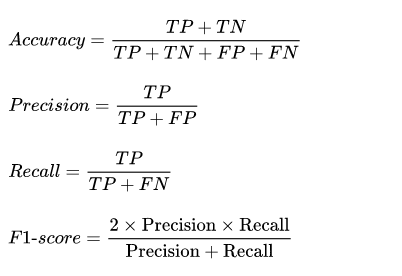References
Amalgamation of code, commands, formulas, or tidbits I find myself repeatedly googling the syntax of
ML code
The most basic calls to openai client
import openai
base_url = None # if you need to specify a non-OpenAI model, set this to a base_url
api_key = os.environ['OPENAI_API_KEY'] # This will actually happen by default, but keeping the boilerplate here in case you need some other api key.
client = openai.OpenAI(base_url=base_url, api_key=api_key)
prompt = "your prompt here!"
model = "gpt-4o-mini"
max_tokens = 128
response = client.chat.completions.create(
model=model,
messages=[{'role': 'user', 'content': prompt}],
max_tokens=max_tokens,
)
print(response.choices[0].message.content)
Call openai client with threads
from openai import OpenAI
from concurrent.futures import ThreadPoolExecutor, as_completed
shared_client = OpenAI(base_url=None, api_key=os.environ['OPENAI_API_KEY'])
def generate(content: str):
return shared_client.chat.completions.create(
model="gpt-4o-mini",
messages=[{'role': 'user', 'content': content}],
max_tokens=512,
).choices[0].message.content
prompts = [
"I am a beacon of knowledge blazing out across a black sea of ignorance.",
"I'm coming friends, wait for me!",
"Axe is a pig?",
"Lich gonna have your mana!",
]
results = {}
# Change max_workers here
with ThreadPoolExecutor(max_workers=12) as executor:
futures = {executor.submit(generate, prompt): index for index, prompt in enumerate(prompts)}
for future in as_completed(futures):
i = futures[future]
result = future.result()
results[i] = result
Using a tiktoken tokenizer
import tiktoken
enc = tiktoken.encoding_for_model("gpt-4")
tokens = enc.encode("The profundities are mine to ransack!")
not_tokens = enc.decode([1, 2, 3, 4])
Using a HuggingFace Tokenizer
from transformers import AutoTokenizer
tokenizer = AutoTokenizer.from_pretrained("bert-base-cased")
tokens = tokenizer("My totality eclipses the cosm!")['input_ids']
not_tokens = tokenizer.decode([1, 2, 3, 4])
Load a HF dataset
from datasets import load_dataset
dataset = load_dataset("Aiden07/dota2_instruct_prompt", name="train")
Python
Dict <–> JSON
import json
with open('data.json', 'r') as fp:
data = json.load(fp)
with open('data.json', 'w') as fp:
json.dump(data, fp, sort_keys=True, indent=4)
Read a .jsonl
import json
file_path = 'data.jsonl'
with open(file_path, 'r', encoding='utf-8') as file:
for line in file:
data = json.loads(line)
print(data)
Write a .jsonl
import json
with open('output.jsonl', 'w') as outfile:
for dict in list_of_dicts:
json.dump(dict, outfile)
outfile.write('\n')
Pretty print a dictionary/JSON
print(json.dumps(ur_dict, indent=4))
Page through a compressed JSON (credit to levy5674!)
import gzip
import json
import boto3
def stream_objects(filename):
with gzip.open(filename, 'rt') as f:
for line in f:
yield json.loads(line)
json_path = "json_path.ndjson.gz"
for i, line in enumerate(stream_objects(json_filepath)):
print(line.keys())
break
List comprehension with conditionals why are they like this w/ different conditionals this annoys me
new_list = [x for x in list]
new_list = [x for x in list if x <3]
new_list = [x if x <3 else y for x in list ]
Double List Comp with conditional
# Get coords of all 1s in a grid
ones = [(r, c) for r, row in enumerate(grid) for c, val in enumerate(row) if val == "1"]
Debugging Interpreter
import IPython; IPython.embed()
Time something in seconds
import time
start = time.time()
function_to_time()
duration = time.time() - start
print(duration)
Or with a decorator! (credit to Suresh Kumar!)
from functools import wraps
import time
def timeit(func):
@wraps(func)
def timeit_wrapper(*args, **kwargs):
start_time = time.perf_counter()
result = func(*args, **kwargs)
end_time = time.perf_counter()
total_time = end_time - start_time
print(f'Function {func.__name__}{args} {kwargs} Took {total_time:.4f} seconds')
return result
return timeit_wrapper
@timeit
def calculate_something(num):
"""
Simple function that returns sum of all numbers up to the square of num.
"""
total = sum((x for x in range(0, num**2)))
return total
if __name__ == '__main__':
calculate_something(10)
calculate_something(100)
calculate_something(1000)
calculate_something(5000)
calculate_something(10000)
Jupyter Magic Commands
%matplotlib inline
%load_ext autoreload
%autoreload 2
Startup Script (#!/bin/bash not needed if it’s not a script)
#!/bin/bash
jupyter lab \
--port=8888 \
--allow-root \
--NotebookApp.token='' \
--NotebookApp.password=''
Add conda env to jupyter
python -m ipykernel install --user --name <ur_env_name_here> --display-name "<ur display name here>"
Bash
find a file with wildcards
find . -name "*.csv"
unzip file
unzip file.zip -d destination_folder
Conda
Create new env
conda create --name <ur_env_name_here> python=3.8
Delete old env
conda env remove --name <ur_env_name_here>
Git commands
Remove large file from commit history - careful with this one:
git filter-branch -f --index-filter 'git rm --cached --ignore-unmatch <filepath>’ HEAD
Checkout branch from remote
git checkout -b <branch_name> origin/<branch_name>
See staged changes
git diff --cached
See changes from latest commit
git diff HEAD~ HEAD
See changes from last X commits
git diff HEAD~X HEAD
Copy files to and from remote
From your local machine:
scp /path/to/local/file user@example.com:/home/name/dir
scp user@example.com:/home/name/dir/file /path/to/local/dir
You can replace user@example.com with predefined aliases in .ssh/config
F1 vs Precision vs Recall vs Accuracy

Precision - percentage of positive predictions that were correct - True Positive / (False Positives + True Positives)
Recall - percentage of positive class that was correctly identified - True Positive / (False Negatives + True Positives)
Accuracy - percentage of predictions that were correct - True Positive + True Negatives / (False Positives + False Negatives + True Positives + True Negatives)
F1 - 2 * (Precision * Recall) / (Precision + Recall) - harmonic mean of precision and recall
i.e. vs e.g.
I.e. stands for id est or ‘that is’ and is used to clarify the statement before it. E.g. means exempli gratia or ‘for example. ‘